D’Angelo and The Vanguard’s sweet revival at the Showbox
D’Angelo and The Vanguard satiated a sold-out audience at Seattle’s The Showbox on Monday, August 10. Throughout the two hour performance, D’Angelo presented artistry refined over time and a purpose deepened by the continued injustices of present-day life.
Last December, the sudden release of D’Angelo’s third album, Black Messiah, was catalyzed by racially-driven violence, such as the deaths of Eric Garner and Michael Brown. The album addresses the full spectrum of the human experience, from the horrors of injustice to the elation of lust and love.
14 years have passed since D’Angelo’s last record, Voodoo. Such a gap between releases is quite remarkable in such a fast-paced world, given the pressure to produce content. With that pressure, quality and meaning can be lost in the frenetics, but Black Messiah emerged as a triumph, both musically and lyrically. D’Angelo’s career at times has felt like a tease, but a tease that was worth the wait, and the buildup of desire makes the Second Coming Tour that much sweeter.
But at The Showbox, D’Angelo performed from the depths of his roots through the reaches of his musicality, and commanded the supergroup-status band with evident joy. The Vanguard includes bassist Pino Palladino, drummer Chris “Daddy” Dave, guitarists Jesse Johnson and Isaiah Sharkey, keyboardist Cleo “Pookie” Sample, tenor saxophonist Kenneth Whalum, trumpet player Keyon Harrold, and vocalists Charles “Red” Middleton, Jermaine Holmes, and Joi Gilliam. Members of the 10-piece band also played on Black Messiah.
D’Angelo has matured into an artist not just capable of high musicianship and writing, but has gone beyond himself to drive a band that truly felt like a movement; that’s what the audience at The Showbox witnessed.
D’Angelo emerged last, stage center, standing with his back to the crowd in darkness. He turned and kicked into “Ain’t That Easy,” his name glittering across his black guitar.
He played keys on “Spanish Joint,” the horn lines and Sharkey’s guitar work elevating heat and energy. “Really Love” felt like a love dialogue between band and audience, everyone singing the opening line, “When you call my name. . . I’m in really love with you.” At one point, Sharkey and D’Angelo traded solos, D’Angelo’s arm draped on Sharkey’s shoulder.
Each song (spanning at least ten minutes) was effectively arranged, especially for a live setting. Never excessive, every musician had space and purpose within the dynamism of The Vanguard.
D’Angelo employed the power of restraint, harnessing complete control over the audience as he built each song. His vocal range was impressive live, but even more astounding were the textures of emotion he expressed, from rich, sustained, smooth croons to gritty, sharp shouts. Harrold’s muted trumpet was especially complementary to D’Angelo’s voice.
Next was “The Charade,” expressing the pain and senselessness of ongoing oppression. D’Angelo said, “Everybody put a fist in the air,” and sang deeply poetic sentiments calling out racially-driven brutality while simultaneously injecting empowerment throughout the crowd. Palladino’s basslines resonated as Dave’s unrelenting groove carried the song’s sense of perseverance.
The chorus line “All we wanted was a chance to talk. ‘Stead we only got outlined in chalk,” could represent one of the most important moments of the show, and maybe of the album as a whole. In one phrase, D’Angelo spoke to the absurdity of injustice.
After two long pauses, they moved into “Brown Sugar,” not forgetting that the sweeter things in life can still exist amidst the bitterness.
“All my ladies, sing!” D’Angelo’s 1995 title track was clearly known and loved as the audience sang along and waved hands back and forth. D’Angelo was energetic and interactive, holding the mic out to the audience frequently. Palladino’s bass tones were rich and smooth, and his playing alone could command a crowd as D’Angelo’s voice does.
The Showbox crowd was treated to two encores, the second inevitably being “Untitled (How Does It Feel).” This song requires the tension buildup of an encore to set the insatiably lustful mood of the song, and the crowd was very, very ready. This seemed to be the highlight of the show for many people.
The Vanguard disassembled one by one, leaving D’Angelo alone playing keys and singing the repeated inquiry, “How does it feel?”
Well, it felt like a resurrection, a conversion of a heavy life into a connective force of music that expressed the breadth and depth of the human experience. The material from Black Messiah in particular was righteously accusatory, unflinchingly honest, and still celebrated beauty, lust, and love, all in a two hour performance.
In a world where artists lament that they need more time to write and to allow their most important words and music to surface above the noise, D’angelo’s patience and self-refinement resulted in music that possess the power to unite. The public and press can be impatient and demanding as if owed something, and pressure can manifest in destruction. And while D’Angelo has not had a smooth ride in the last decade and a half, he and his team stuck to the point of creation: purpose and authenticity.
“You don’t ever have to fear that my love is not sincere. I will never betray my heart.”
SETLIST:
Drone
Ain’t That Easy
Vanguard Theme
Betray My Heart
Spanish Joint
Claire Fisher Interlude
Really Love
The Charade
Brown Sugar
Sugah Daddy
Left & Right
Chicken Grease
Untitled (How Does It Feel)
Click on a photo to see the complete photo slideshow…

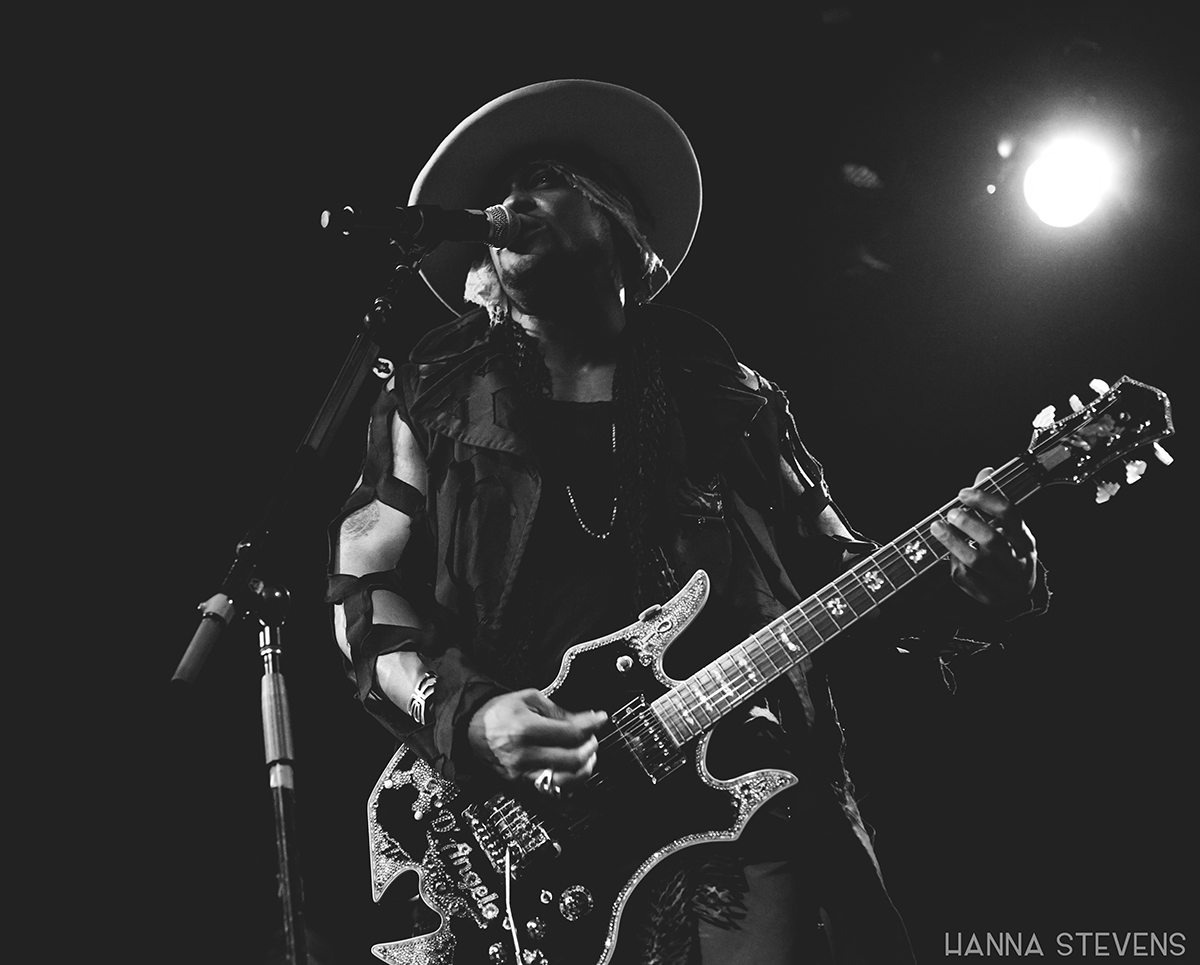
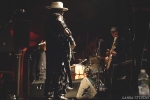
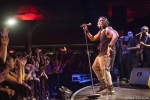
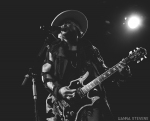

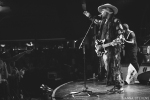
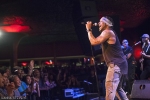
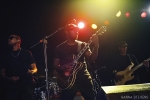
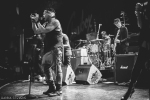
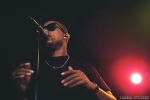
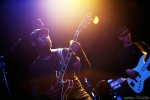
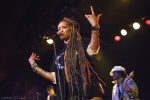
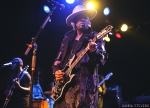
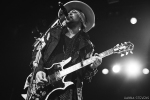
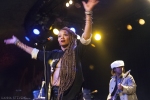
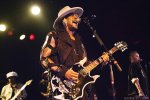
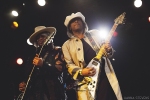
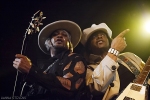
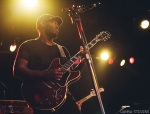
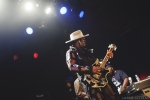
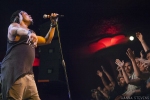
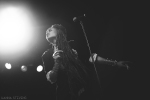
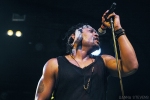
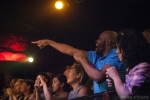
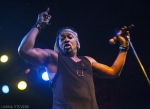
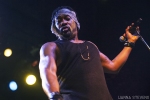
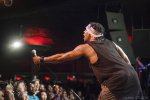
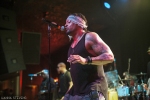
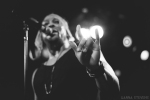
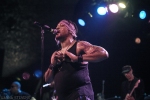
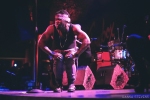
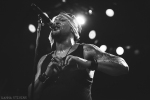
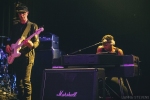
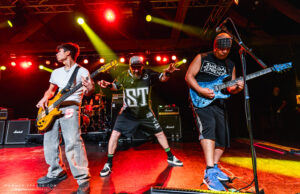
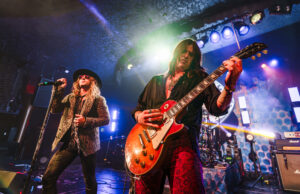
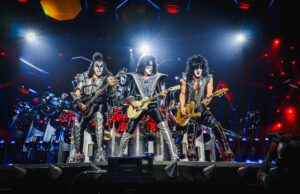

0 comments